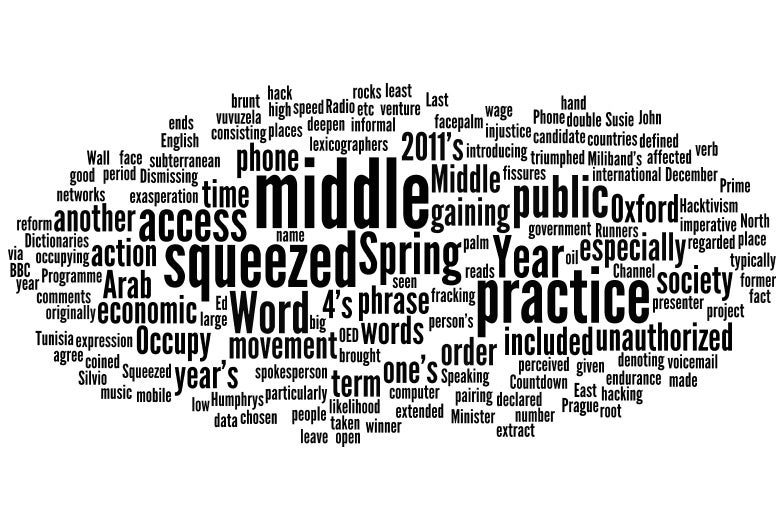The word of the year? 'Squeezed middle' says Oxford Dictionary

Your support helps us to tell the story
From reproductive rights to climate change to Big Tech, The Independent is on the ground when the story is developing. Whether it's investigating the financials of Elon Musk's pro-Trump PAC or producing our latest documentary, 'The A Word', which shines a light on the American women fighting for reproductive rights, we know how important it is to parse out the facts from the messaging.
At such a critical moment in US history, we need reporters on the ground. Your donation allows us to keep sending journalists to speak to both sides of the story.
The Independent is trusted by Americans across the entire political spectrum. And unlike many other quality news outlets, we choose not to lock Americans out of our reporting and analysis with paywalls. We believe quality journalism should be available to everyone, paid for by those who can afford it.
Your support makes all the difference.Compilers of the Oxford English Dictionary have declared 2011’s Word of the Year to be "squeezed middle".
Dismissing for a moment the troubling fact that lexicographers have chosen a phrase rather than a single word for this year's winner, it is surprising that "squeezed middle" was deemed more appropriate than "Arab Spring".
The term was originally coined by Ed Miliband when speaking to BBC Radio 4's Today Programme presenter John Humphrys.
The full OED definition reads: "Squeezed Middle: the section of society regarded as particularly affected by inflation, wage freezes and cuts in public spending during a time of economic difficulty, consisting principally of those on low or middle incomes".
Last year another pairing of words, "big society”, triumphed over contenders such as "vuvuzela" and "double dip".
Speaking about Miliband's term for those seen as bearing the brunt of government tax burdens while having the least with which to relieve it, Susie Dent, spokesperson for Oxford Dictionaries and language expert on Channel 4's Countdown, said: "The speed with which squeezed middle has taken root, and the likelihood of its endurance while anxieties deepen, made it a good candidate for Word of the Year."
Runners up for this year’s title included:
Arab Spring: a series of anti-government uprisings in various countries in North Africa and the Middle East, beginning in Tunisia in December 2010. [After Prague Spring, denoting the 1968 reform movement in Czechoslovakia.]
Hacktivism: the action or practice of gaining unauthorized access to computer files or networks in order to further social or political ends. [A blend of hack and activism]
Occupy: the name given to an international movement protesting against perceived economic injustice by occupying buildings or public places and staying there for an extended period of time.[From the imperative form of the verb occupy, as in the phrase Occupy Wall Street.]
Phone hacking: the action or practice of gaining unauthorized access to data stored in another person's phone, especially in order to access their voicemail.
Sodcasting: (informal) the practice of playing music through the loudspeaker of a mobile phone while in a public place. [After podcasting]
Other words on the longlist included "bungabunga", as used in the context of former Italian Prime Minister Silvio Berlusconi’s infamous parties; “crowdfunding”, defined as the practice of funding a project or venture by raising many small amounts of money from a large number of people, typically via the Internet; “facepalm” (a gesture in which the palm of one's hand is brought to one's face as an expression of dismay, exasperation, embarrassment, etc.); and “fracking” (the forcing open of fissures in subterranean rocks by introducing liquid at high pressure, especially to extract oil or gas).
Do you agree with “squeezed middle” as 2011’s Word of the Year? Please leave comments and suggestions below.
Join our commenting forum
Join thought-provoking conversations, follow other Independent readers and see their replies
Comments